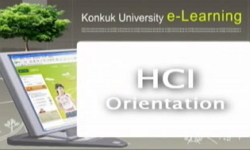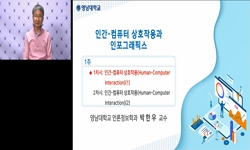本硏究は、韓日女性母語話者1)の謝罪行動の相互作用による結果の特徵を中心に、つまり、受け入れる場合や受け入れない場合の特徵を明らかにすることを主な目的とした。特に、韓日女...
http://chineseinput.net/에서 pinyin(병음)방식으로 중국어를 변환할 수 있습니다.
변환된 중국어를 복사하여 사용하시면 됩니다.
- 中文 을 입력하시려면 zhongwen을 입력하시고 space를누르시면됩니다.
- 北京 을 입력하시려면 beijing을 입력하시고 space를 누르시면 됩니다.

相互作用の觀点で見る謝罪行動の結果について -韓日女性母語話者の使用傾向を中心に- = On the Results of Apologetic Behavior from the Perspective of Interaction: Focusing on the Tendency of Conversation of Korean and Japanese Female Speakers
한글로보기https://www.riss.kr/link?id=A104180357
- 저자
- 발행기관
- 학술지명
- 권호사항
-
발행연도
2017
-
작성언어
Korean
- 주제어
-
등재정보
KCI등재
-
자료형태
학술저널
-
수록면
209-227(19쪽)
- DOI식별코드
- 제공처
-
0
상세조회 -
0
다운로드
부가정보
다국어 초록 (Multilingual Abstract)
本硏究は、韓日女性母語話者1)の謝罪行動の相互作用による結果の特徵を中心に、つまり、受け入れる場合や受け入れない場合の特徵を明らかにすることを主な目的とした。特に、韓日女性母語話者の會話例を質的に分析し、韓國と日本の對人コミュニケ一ションの特徵まで探ることを試みた
受け入れる謝罪行動の相互作用の「謝罪關連發話文」をみると、「謝罪發話文」は日本女性母語話者で多く用いられており、「過失修復發話文」は、韓國女性母語話者で若干多く用いられているが、これらの發話文以外は、韓日による相違点はあまり見られなかった。日本女性母語話者の方が、「謝罪定型表現」が現れることを重要に捉えており、韓國女性母語話者では、自分の過失を修復するため積極的に動き掛ける謝罪する側の相互作用を肯定的に評價する傾向が明確に見られた。次に、「應答關連發話文」では「非難發話文」と「問題解決發話文」は韓國女性母語話者で若干多く用いられており、「受諾發話文」は日本女性母語話者で多く用いられていた
受け入れない謝罪行動の相互作用の「謝罪關連發話文」をみると、「狀況說明發話文」は韓國女性母語話者で若干多く用いられており、「意向變更發話文」は日本女性母語話者で多く用いられているが、これらの發話文以外は韓日による相違点はあまり現れなかった。第三者にも迷惑をかけることになる本硏究の謝罪場面では「迷惑」に關する强い意識を持っている日本女性母語話者で「意向變更發話文」が多く現れたと考えられる。次に、「應答關連發話文」では「非難發話文」は韓國女性母語話者で多く用いられており、「事態確認發話文」や「問題解決發話文」は日本女性母語話者で多く用いられていた。
다국어 초록 (Multilingual Abstract)
This paper focuses on the results of the interaction of apologetic behaviors of Korean and Japanese female native speakers. In other words, the main purpose is to reveal characteristics of the cases where apology is accepted and where apology is not a...
This paper focuses on the results of the interaction of apologetic behaviors of Korean and Japanese female native speakers. In other words, the main purpose is to reveal characteristics of the cases where apology is accepted and where apology is not accepted. In particular, by making a qualitative analysis of conversation examples of Korean and Japanese female native speakers, we tried to identify the characteristics of interpersonal communication of Korea and Japan.
In the “apology related utterance” of interactions in which apology is accepted, "apology utterance" is often used in Japanese female native speakers, and "mistake restoration utterance" is used a little in Korean female native speakers, but apart from these utterances, the difference between Korea and Japan was not very great. Japanese female native speakers responded sensitively to determinants such as the weight of the burden of other party, the degree of one`s own interests in the scene of apology, and considered to be important that "apology formal expression" appeared.
In the “apology related utterance" of interactions in which apology is not accepted, "situation explanation utterance" appeared a little in Korean female native speakers, and " intention change utterance" appeared in Japanese female native speakers, but apart from these utterances, the difference between Korea and Japan was not very great. Next, in the "response related utterance", "blame utterance" was often used in Korean female native speakers, and "situation confirming utterance" and "problem solving utterance" show a tendency to be used in Japanese female native speakers.
동일학술지(권/호) 다른 논문
-
文章構造を意識した日本語作文敎育 -國語敎師と日本語敎師の作文評價の分析から-
- 한국일어교육학회
- 정윤정 ( Chong Yun-jung )
- 2017
- KCI등재
-
고등학교 일본어 교재의 문법용어 분석과 제언 -『EBS 수능특강 일본어Ⅰ』을 대상으로 -
- 한국일어교육학회
- 장근수 ( Jang Kun-soo )
- 2017
- KCI등재
-
웹기반 일본어 교육용 학습프로그램 `JLE Tool`에 대하여 -어휘 용례 수집과 문장 번역 연습 활용을 중심으로-
- 한국일어교육학회
- 윤영민 ( Yun Young-min )
- 2017
- KCI등재
-
誘いの會話における言いさし發話の分析 -日本語母語話者によるロ一ルプレイをもとに-
- 한국일어교육학회
- ウィモンサラウォン、アパポ一ン ( Wimonsarawong Apapohn )
- 2017
- KCI등재





 KCI
KCI KISS
KISS






